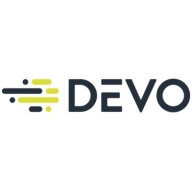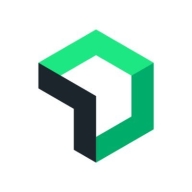

New Relic and Devo both operate in the monitoring and analytics solutions category. Based on user feedback, New Relic has an upper hand in user-friendliness and support, while Devo excels in advanced data analytics features.
Features: New Relic includes intuitive dashboards, extensive integrations, and real-time monitoring. Devo features powerful data ingestion, advanced querying, and custom analysis tools.
Room for Improvement: New Relic can improve data visualization variety, enhance alerting options, and broaden custom reporting. Devo could improve interface responsiveness, provide clearer documentation, and streamline setup processes.
Ease of Deployment and Customer Service: New Relic is noted for its straightforward deployment and proactive support. Devo's deployment is complex but benefits from a knowledgeable support team.
Pricing and ROI: New Relic offers competitive pricing, balancing cost and value. Devo has higher pricing, which users feel is justified by its specialized features, potentially offering better ROI for advanced use cases.
| Product | Market Share (%) |
|---|---|
| New Relic | 13.4% |
| Devo | 4.8% |
| Other | 81.8% |


| Company Size | Count |
|---|---|
| Small Business | 8 |
| Midsize Enterprise | 4 |
| Large Enterprise | 11 |
| Company Size | Count |
|---|---|
| Small Business | 65 |
| Midsize Enterprise | 50 |
| Large Enterprise | 61 |
Devo is the only cloud-native logging and security analytics platform that releases the full potential of all your data to empower bold, confident action when it matters most. Only the Devo platform delivers the powerful combination of real-time visibility, high-performance analytics, scalability, multitenancy, and low TCO crucial for monitoring and securing business operations as enterprises accelerate their shift to the cloud.
New Relic offers real-time application monitoring and insight into performance bottlenecks. Its customizable dashboards and APM integration provide efficient operational support, while server performance alerts ensure quick issue detection.
New Relic provides comprehensive monitoring of application performance, tracking bottlenecks across databases and front-end components. Users employ it for server and infrastructure monitoring, as well as analyzing key metrics such as CPU and memory usage. The solution's ability to integrate with tools like PagerDuty enhances incident management capabilities. However, users have expressed a need for improvements in query language simplicity, more detailed historical insights, and better mobile app monitoring support.
What are New Relic's most important features?In industries like e-commerce and financial services, New Relic supports application performance monitoring to enhance user experience and system reliability. Organizations leverage its insights for optimizing performance, particularly in server operations and infrastructure management. Its ability to monitor API failures through synthetic monitoring is crucial for maintaining high service levels.
We monitor all IT Operations Analytics reviews to prevent fraudulent reviews and keep review quality high. We do not post reviews by company employees or direct competitors. We validate each review for authenticity via cross-reference with LinkedIn, and personal follow-up with the reviewer when necessary.